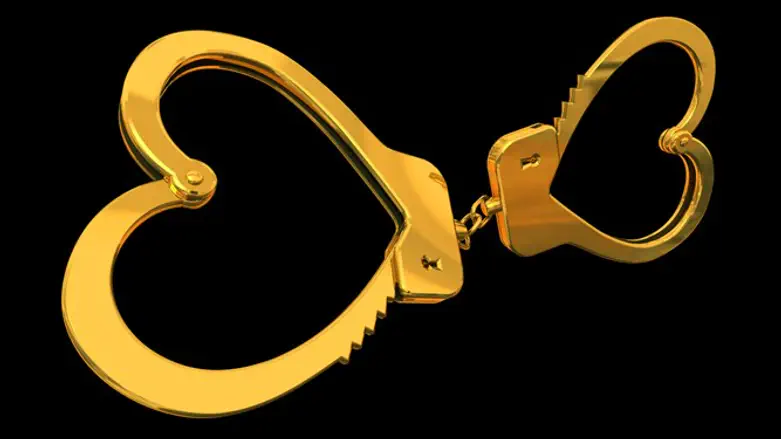
On Tuesday morning, the rabbinical court publicized 2016's divorce statistics, including those on "chained" spouses, whose spouse refuses to grant a religious divorce.
Statistics show that over 200 women were refused a get by their husbands, but what about the men whose wives refused to accept a divorce? Arutz Sheva spoke with family attorney Ido Divon about the issue.
According to Divon, the issue of "chained spouses" does not only affect women, since Jewish law requires the woman to accept a divorce willingly in order for it to be valid.
"Men suffer from get (religious divorce) refusal no less than women do," Divon said. "Usually, we think of women as chained spouses, for whom no solution can be found, because men have to grant the divorce willingly. People think that because men can technically receive permission to remarry, they can refuse to grant a divorce but cannot be refused a divorce."
"In reality, the problem is exactly the opposite: Rabbinical courts look for ways to allow women to remarry despite their husband's refusal to grant a divorce, but they ignore the problem of men being refused a divorce by their wives. It's very rare for a man to be granted permission to remarry before his wife accepts a divorce.
"Statistics show that more men are punished for refusing to divorce their wives than are granted permission to remarry despite the wife's refusal to divorce.
"Allowing someone to remarry is a long process. The rabbinical courts are war of it, and they're afraid of being criticized. Former Chief Rabbi Yisrael Meir Lau was famous for refusing to allow men to remarry if granting the permission required the approval of Israel's chief rabbis.
"In addition, religious men who are refused a divorce are considered married by society - even after they receive permission to remarry. They really suffer.
"Men are often jailed for refusing to grant their wives a divorce - but wives are rarely, if ever, jailed for refusing to divorce their husbands. And this is true despite the fact that Jewish law considers coercing a husband to grant a divorce worse than coercing a wife to grant a divorce.
"I've been working for dozens of years to change the way the rabbinical courts work. There's a lot of pressure from feminists and from women's organizations, and there's a lot of awareness of chained women in the media. I agree that it's worse for a woman to be denied a divorce, because society is more accepting of married men who are involve in extramarital relationships than of married women who involve themselves in the same. But the risk is there for men, too, and society is not always forgiving.
"Men's organizations need to speak up and to put pressure on the public and on the organizations involved. They need to say their opinion, and they need to do exactly what the women's organizations have done: Scream about the issues."
Divon says he doesn't know how widespread the phenomenon is, but he expects that if a woman is sent to jail for refusing to divorce her husband, it'll make it to the media.
"When the rabbinical court puts a recalcitrant husband in jail, everyone celebrates. But if they would have done the same thing to a recalcitrant wife, the women's organizations and the media would have had a ball 'proving' how women are discriminated against in the rabbinical courts - even though that's absolutely not true, since rabbinical courts give women preferential treatment, especially in divorce cases."